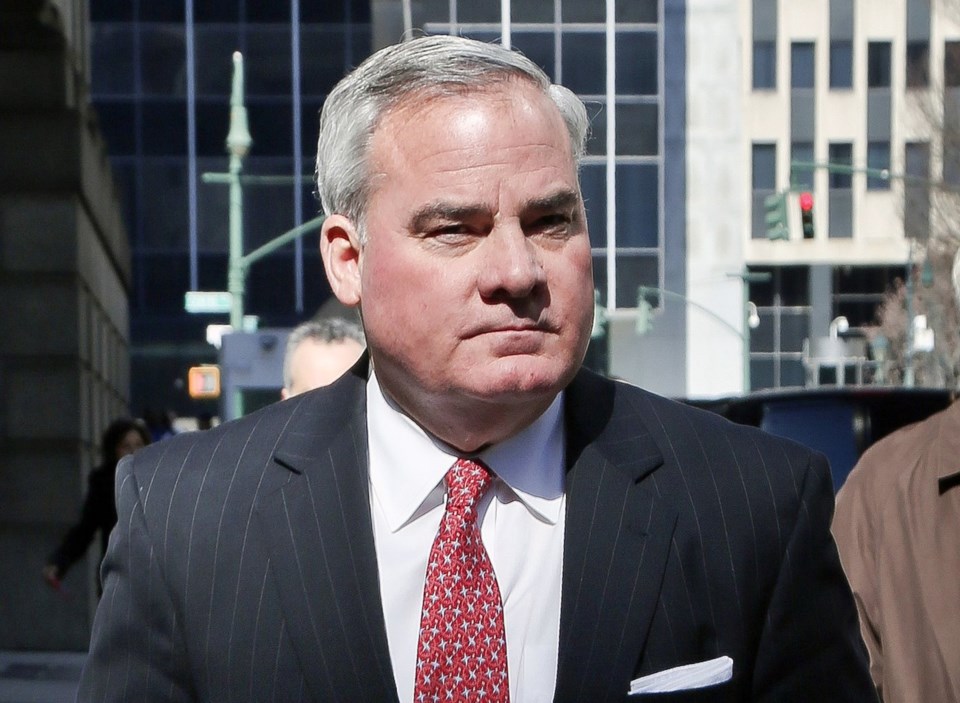WASHINGTON (AP) ‚ÄĒ and served two stints in federal prison. A New York Republican who and who made headlines for threatening to throw a reporter off a Capitol balcony over a question he didn't like. and evading taxes.
All were unlikely beneficiaries this week of pardons, with President Donald Trump flexing his executive power to bestow clemency on political allies, prominent public figures and others convicted of defrauding the public. The moves not only take aim at criminal cases once touted as just by the Justice Department but also come amid a continuing Trump administration erosion of public integrity guardrails, including the and the established to hold public officials accountable for abusing the public trust.
"He is using pardons to essentially override the verdicts of juries, to set aside the sentences that have been imposed by judges and to accomplish political objectives,‚ÄĚ said Liz Oyer, who was fired in March as the Justice Department's pardon attorney after she says she refused to endorse restoring the gun rights of actor , a Trump supporter. ‚ÄúThat is very damaging and destructive to our system of justice.‚ÄĚ
To be sure, other presidents have courted controversy with their clemency decisions. and . More recently, sparing the younger Biden a possible prison sentence for federal felony gun and tax convictions and reversing his past promises not to use the extraordinary powers of the presidency for the benefit of his family.
But the pardons announced Wednesday are part of a pattern of clemency grants that began in Trump's first term and has continued in the current one in which bold-faced names, prominent supporters and defendants whose causes are championed by friends time and again have an edge on ordinary citizens who lack connections to the White House.
In 2020, for instance, that shadowed his first term as well as his son-in-law's father, .
On his first day back in office, of all of the 1,500-plus people charged with crimes , using his clemency powers to undo the massive prosecution of the unprecedented assault on the seat of American democracy.
, and entangled in criminal investigations in the White House and in his post-presidency life, Trump has long conveyed public suspicion about prosecutorial power and found common cause with politicians ‚ÄĒ including on the other side of the aisle ‚ÄĒ he sees as having been mistreated like he believes he was.
In February, for instance, the Republican president pardoned former Democratic Illinois Gov. after having earlier commuted his 14-year sentence on political corruption charges. Blagojevich, he said, ‚Äúwas set up by a lot of bad people, some of the same people I had to deal with.‚ÄĚ
The most recent pardon beneficiaries include former GOP New York Rep. , who pleaded guilty in 2014 to underreporting wages and revenue at a restaurant he ran in Manhattan. The former Marine and FBI agent resigned from Congress the following year and was sentenced to eight months in prison. Grimm tried to reenter politics in 2018 but lost a primary for his old district.
Others include former Republican Connecticut Gov. John Rowland, whose once-promising political career was cut short by a criminal case over gifts and favors from state contractors. Rowland was later convicted and imprisoned a second time for conspiring to hide his work on political campaigns and was in federal prison.
The White House also announced pardons for and Todd and Julie Chrisley, famous for ‚ÄúChrisley Knows Best,‚ÄĚ a reality show that followed their family and extravagant lifestyle that prosecutors said was boosted by bank fraud and hiding earnings from tax authorities. The couple was convicted in 2022 of conspiring to defraud banks out of more than $30 million in loans by submitting false documents.
The latest pardons unfold as Trump has departed from the norms and protocols of the clemency process and as the Justice Department has signaled a tweaked approach to public corruption and white-collar fraud.
The department, for instance, has long had a pardon attorney tasked with sifting through applications from defendants and recommending clemency to the White House for those seen as having served their debt to society and accepted responsibility for their crimes, including drug offenders serving long sentences and not generally known to the public or connected to the powerful.
In place of Oyer, the fired pardon attorney, , a Trump loyalist who briefly served as interim U.S. attorney in Washington. He has already pledged to scrutinize pardons that Biden issued on his way out of office and has said he serving long prison terms for to kidnap Democratic Michigan Gov. Gretchen Whitmer.
Meanwhile, the department's vaunted public integrity section, created in the post-Watergate era to investigate and prosecute public officials for abusing their powers, has been dramatically slashed, whittled down to just a handful of lawyers.
The section endured an exodus of prosecutors after Justice Department leaders demanded the dismissal of a corruption case against in part so he could assist in the Trump administration's immigration crackdown.
The pardons, said Princeton University presidential historian Julian Zelizer, fit ‚Äúwithin the fold of his presidency, where he uses a lot of his power either for retribution or reward rather than for just kind of pure policy-making. We have to understand the pardons in that framework.‚ÄĚ
Eric Tucker, The Associated Press




